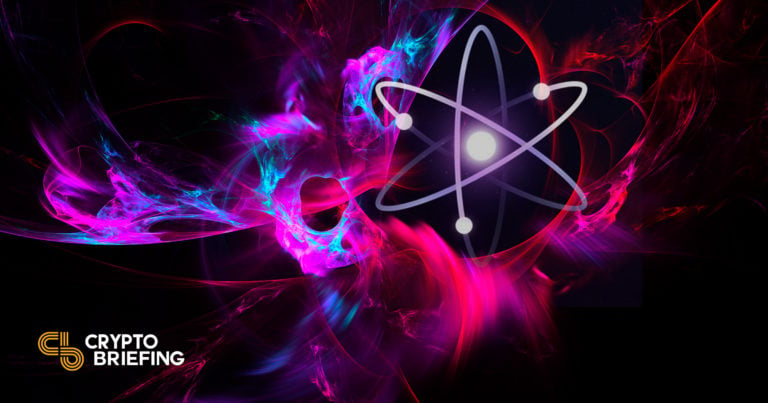Why Was Cosmos Hub’s ATOM 2.0 Proposal Rejected?

Key Takeaways
- A hotly contested vote noticed the Cosmos Hub group rejecting the proposal to implement the ATOM 2.0 whitepaper.
- 37.99% of the tokens voted “NoWithVeto,” signaling sturdy pushback from the group.
- The proposal brought on controversy over its revamped tokenomics and want to implement a number of advanced new instruments unexpectedly.
Share this text
The ATOM 2.0 proposal has rejected by the Cosmos Hub group in a hotly contested vote; the proposal failed regardless of gaining help from nearly all of voters.
ATOM 2.0 Fails to Move
After weeks of debate and a tense two-week voting interval, the Cosmos Hub group determined earlier this morning to reject Proposal #82, “ATOM 2.0: A brand new imaginative and prescient for Cosmos Hub.”
Primarily based on a whitepaper penned by Cosmos co-founder Ethan Buchman and eleven others, the proposal was marketed as the following step in Cosmos Hub’s evolution. Amongst different issues, the whitepaper urged drastically altering ATOM’s tokenomics and constructing two new instruments, the Interchain Allocator and the Interchain Scheduler, which they argued would assist cement Cosmos Hub as some of the essential appchains within the broader Cosmos ecosystem.
The proposal, now thought-about by some locally as essentially the most controversial within the historical past of Cosmos, noticed an unusually excessive turnout of 73.41% of all ATOM tokens, with the vote remaining tight till the very finish. Finally, 47.51% of cash have been pledged in favor, 37.39% voted “NoWithVeto,” 13.27% abstained, and 1.82% merely voted no.
Whereas most tokens have been certainly pledged in favor, Cosmos Hub’s governance mechanics be certain that a proposal can’t cross if greater than 33.4% of voters go for “NoWithVeto”—a system that stops the Hub from falling prey to 51% assaults. “NoWithVeto” is, due to this fact, a powerful sign group members use to speak their perception {that a} proposal is actively dangerous to Cosmos Hub’s pursuits.
Buchman acknowledged the sturdy response towards the proposal in a tweet storm: “To people who voted NoWithVeto, I respect your determination and listen to you loud and clear: the proposal in its present type is untenable. Even when it handed, amendments can be mandatory!”
Why Was It Rejected?
ATOM 2.0 was an formidable and thrilling proposal, and which will have been a part of its drawback.
The 26-page whitepaper didn’t restrict itself to modifying one or two features of the ATOM token, because the group initially anticipated, however got down to basically rework the way in which the Cosmos Hub functioned by introducing three new main instruments along with revamping tokenomics. The Interchain Scheduler, for instance, goals to be an on-chain MEV market, whereas the Interchain Allocator’s position can be to allow mutual stakeholding throughout totally different IBC chains; these are two very totally different, very advanced matters, and ATOM stakers might have ended up voting towards the proposal due to one of many instruments regardless of liking the opposite one.
One other vivid difficulty within the ATOM 2.0 proposal needed to do with the revamped tokenomics. The whitepaper argued in favor of significantly growing the issuance of ATOM tokens for a short time with a view to subsidize the Hub, after which reducing emissions over a interval of 36 months. Critics argued that the change in financial coverage was unwarranted and that particulars have been missing with regard to how the Hub would use the amassed ATOM. Others have been unconvinced that ATOM emissions may very well be efficiently changed by different sources of income by the point emissions waned.
Most definitely, the assorted parts of the ATOM 2.0 whitepaper will find yourself being resubmitted to the group for voting as their very own particular person initiatives, similar to how an in depth proposal for Interchain Safety—one other formidable initiative to place Cosmos Hub as a central element of the Cosmos ecosystem—was handed in March.
Disclaimer: On the time of writing, the writer of this piece owned ATOM, BTC, ETH, and several other different cryptocurrencies.





